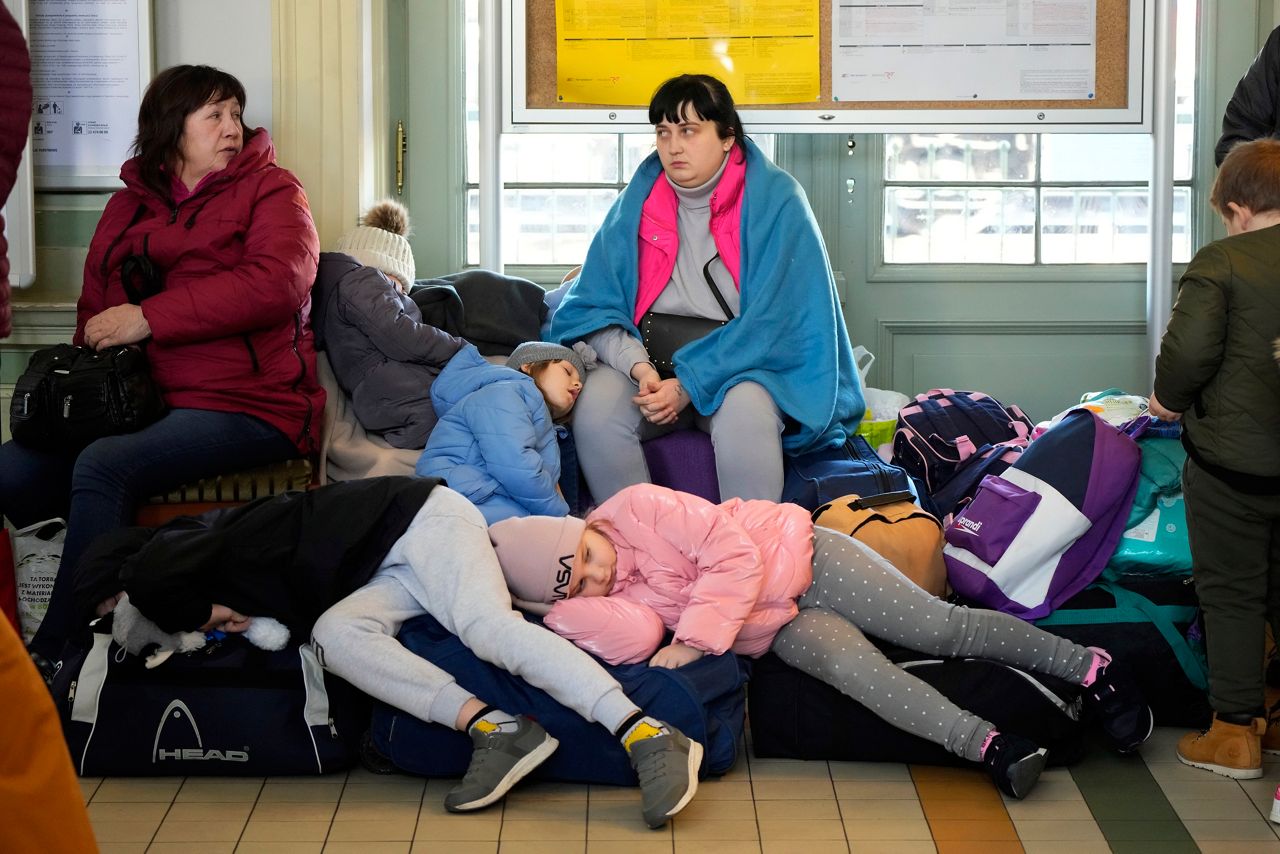In the wake of President Joe Biden’s announcement that the U.S. will be welcoming as many as 100,000 refugees from Ukraine, officials in the greater Portland area are expressing concerns about where to house potential asylum seekers arriving from the war-torn country.
“We obviously have a housing crisis with homelessness in Maine, and so any additional people coming to seek housing, absolutely it worries me,” said Kristen Dow, Portland’s Director of Health and Human Services.
On April 21, the Biden administration unveiled Uniting for Ukraine, a new process that allows Ukrainian refugees fleeing Russian invasion to come to the U.S. The announcement indicated a new web-based registration portal could accommodate up to 100,000 people fleeing Ukraine.
It is unclear, however, where those refugees will settle once they arrive. Belinda Ray, Director of Strategic Partnerships for the Greater Portland Council of Governments, said she knows of no state or federal-level mechanism in place to handle resettlement, meaning the refugees could wind up anywhere.
That could present a logistical problem, she said, if any number of refugees came to Portland. GPCOG has been working with communities in greater Portland to manage a growing crisis of unhoused people in southern Maine. Right now, Ray said, there are over 1,000 people from other countries currently living in temporary housing in area hotels while resettlement coordinators in Portland search for permanent housing. That’s up from the 700 asylum seekers reported in southern Maine back in March, and doesn’t include hundreds of homeless people living in similar temporary housing assignments in the area.
At one point in late March and early April, Ray said, there were as many as 100 new asylum seekers arriving in Portland per week.
Dow expressed similar concerns and is worried the numbers will only climb.
“The crisis is growing on a daily basis. This is not going away anytime soon,” she said.
While the state legislature is diverting $10 million from the liquor fund to Portland, Bangor and Lewiston to help the cities accommodate the growing number of unhoused people arriving in the state, Ray believes a proper long-term solution is the only way forward, and that means developing apartment-style temporary housing.
“Once you can build that, then you can use it for years and years and years,” she said.
In the short term, Ray said, officials in Portland-area communities are working together to find properties where modular or mobile homes can be set up, thus getting the homeless out of the hotels.
“We are trying to convince people to (help) come up with solutions,” she said.
Catholic Charities Maine helps provide resettlement services for refugees. Kathy Mockler, the organization’s director of development and communications, said there has been no official notice of Ukranians coming to Maine.
“We believe if, and when, the time comes, it will be a small number based on the size of Maine’s current Ukrainian population,” she said.
Ray said GPCOG hasn’t heard anything yet about Ukrainians resettling in Maine. She said she wasn’t sure how local communities can help, given how thin current resources are stretched.
“I don’t know how the numbers would play out, and who would settle where,” she said.
Dow said she is also worried about the logistics of helping Ukrainians who want to settle in Portland.
“I’m not really sure where the refugees would go,” she said.



